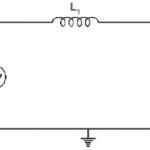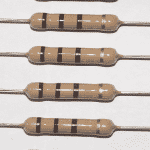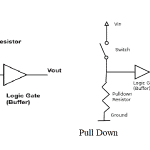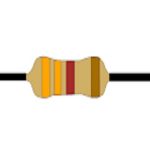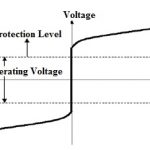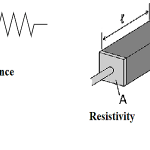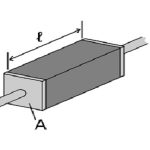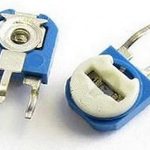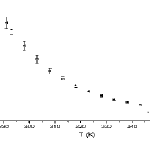The resistor was invented in 1827 by a mathematician namely “Georg Simon Ohm” at the University of Erlangen. After that, he published several research papers on the transmission of heat within molded circuits & also invented the “ohm law”. After this law invention, there are many types of resistors were developed. At present, we are using different types of resistors in so many electrical and electronic applications. This article provides brief … [Read more...]
What is RL Circuit : Impulse Response & Phasor Diagram,
We all know that the basic passive linear elements in the domain of electrical and electronics are capacitor, resistor, and inductor. These elements are integrated to form various types of electric circuits. The major circuit types are RC, RLC, LC, and RL where these combinations exhibit major kinds of performance which are essential to analog electronics. In specific, they hold the ability to perform as passive type filters. In a practical way, capacitors … [Read more...]
What is Carbon Composition Resistor : Construction & Its Working
The carbon composition resistor is the most fundamental and crucial electronic component which is extensively used in every circuit across electrical and electronic domains. There are various types of resistors that operate based on functionality, requirement, and design. They may range from minimal surface-mounted chip resistors to huge wire wounded power resistors. Even there exist various kinds of resistors which are constructed in multiple forms due … [Read more...]
What are Pull Up and Pull Down Resistors & Their Applications
Resistor, the most and crucial electronic component which is used in almost every electronic device. Even though our today’s discussion is on pull-up and pull-down resistors, the first and fundamental concept that we need to know is what is a resistor. So, a resistor is the two-terminal device which are used for the measurement of resistance. In the circuits, these resistors are used for the purpose of controlling current levels, voltage distribution, … [Read more...]
What is a Resistor : Construction, Properties and Its Applications
The resistor is one of the fundamental elements in engineering. As compared to other fundamental elements inductor and capacitor, the resistor is used in almost all electronic and electrical circuits. It is also known as a linear, bilateral, and passive element. The resistor is available in a different range of values, starting from milliohms to megaohms. It also dissipates a lot of heat when it carries current. Resistor value depends on the resistivity of … [Read more...]
What is Varistor : Working and Its Applications
Usually, in electronic circuits, we encounter currents and voltages of the order of milliamperes and millivolts. Electronic circuits have very high input impedance and are very sensitive. Our usual methods of over current protection or over-voltage protection are not applicable here. We need a device that is quick and sensitive. A varistor is a device that meets our requirement and controls voltage spikes very effectively thus protecting our circuit. The … [Read more...]
Difference between Resistance and Resistivity
In the electrical and electronics industries, the concepts of resistance and resistivity are the most important ones. One has to be clear regarding why these topics hold prominence and what are differences and comparisons? The foremost difference is that resistance opposes the electron flow, while resistivity defines the material’s resistance having the corresponding dimension. So, here is a detailed view of all these topics. This article discusses an … [Read more...]
What is Resistivity and Its Variation with Temperature
Resistivity implies the measure of the resistance offered by an element for a given dimension at a particular temperature. Based on the resistivity, properties and characteristics of the element can be found out which are very important while designing a particular circuit, or applications. Even, based on its values, the element is categorized as conductor, insulator, or semiconductor. It need not be confined to only electrical property like the flow of … [Read more...]
What is a Variable Resistor : Working Principle & Its Applications
The variable resistor is an element that offers variable resistance to the circuit. By adjusting its internal configuration, we can obtain variable resistance at the load side. This element is frequently used in electrical and electronic circuits to vary the current flowing in the circuit. Apart from varying current, this element is also used to control some basic parameters like speed, temperature for commonly used electrical loads. A simple example would … [Read more...]
What is Temperature Coefficient of Resistance
As we are in the era of digital technology, the foremost concept to be known about is electronic engineering. As every industry in this digital scope needs of electronic instruments, one has to be clearly aware of its concepts and properties. The one concept which we are going to discuss is the temperature coefficient of resistance. When there is current movement through the wire, heat gets generated through this because of resistance in the wire. This … [Read more...]

